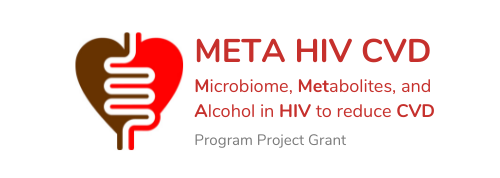Updates from 2nd Generation URBAN ARCH HIV/Alcohol P01s
This fall, the ARCHER team continued to recruit, screen, enroll, and collect data for the center’s Pain Trial and Physical Activity (PA) Trials. In collaboration with BuildClinical, a vendor specializing in targeted online campaigns to recruit participants for clinical research studies, we have received over 2,500 potentially eligible participants to screen for eligibility for the ARCHER trials. We have phone screened 600 potentially eligible participants for the Pain Trial, and 583 potentially eligible participants for the PA Trial. In total, we currently have 238 participants enrolled and randomized: 109 in the Pain Trial and 129 in the PA Trial. Randomized participants have consented, completed the baseline interview, and completed 15 days of ecological momentary assessment (EMA) data collection. In the PA Trial, participants have also completed 15 days of Fitbit wear. In addition to collecting baseline data, we have been actively collecting 3-month and 6-month follow-up data: 79 participants in the Pain Trial have completed their 3-month interview and 3-month EMA surveys, and 75 participants in the PA Trial have completed their 3-month interview and 3-month EMA surveys. Sixty-three participants in the Pain Trial have completed their 6-month interview, of which 57 also completed the at-home blood draw which is shipped to a lab and analyzed for Phosphatidylethanol (PEth), an alcohol biomarker. Sixty-two participants in the PA Trial have completed their 6-month interview, of which 59 completed the at-home blood draw which is shipped to a lab and analyzed for PEth. Additionally, the ARCHER team convened our fourth data and safety monitoring board (DSMB) meeting in October.
The ARCHER P01 was awarded a two-year administrative supplement in September from NIAAA to investigate social determinants of health (SDOH) among participants enrolled in the Pain and PA Trials. This administrative supplement will leverage these two ongoing trials, implementing a comprehensive SDOH assessment to collect SDOH data from ARCHER Pain and PA Trial participants at two timepoints, 6 months apart. These SDOH data will be used to characterize problematic SDOH and the extent to which SDOH factors predict unhealthy drinking. This supplement aims to identify modifiable, upstream determinants of unhealthy drinking among people living with HIV that may serve as targets for future interventions to improve outcomes among this vulnerable population. Dr. Sabrina Assoumou has joined the ARCHER team to lead this administrative supplement.

The team is thrilled to announce the publication of the ARCHER Pain Trial Protocol paper: Integrated telehealth intervention to reduce chronic pain and unhealthy drinking among people living with HIV: protocol for a randomized controlled trial, which was accepted by Addiction Science & Clinical Practice in August 2024 and published online in September 2024.
We are also excited to announce two new publications of secondary analyses of the Boston ARCH cohort supported by ARCHER. Pain and unhealthy alcohol use among people living with HIV: A prospective cohort study was accepted by Alcohol, Clinical and Experimental Research in August 2024, and published online in September 2024. Social Vulnerability and Mental Health Among People with HIV and Substance Use: The Role of Race was accepted and published online by AIDS and Behavior in September 2024.
We invite any interested investigators who wish to use existing Boston ARCH data for secondary analysis to contact ARCHER PI, Dr. Stein, or Kara Magane, Senior Director of Research Operations, for additional information.
The META HIV CVD Randomized Control Trial has enrolled over 50 participants to date, with 5 participants having completed the study. Participants are also now able to take part in the ancillary study GIT HIV CVD. The team is finalizing plans to expand study visits to Vanderbilt’s Clinical Research Center, in addition to current visits occurring at the Comprehensive Care Clinic, to accommodate the growing number of participants.
For the other aspects of the Program Project Grant, the Integrated Metagenomic and Metabolomic Core Lab at the University of Louisville are currently working on PBMC and GLP-1 processing. In October 2024, the DSMB met and the NIAAA DA upload was successfully completed.

